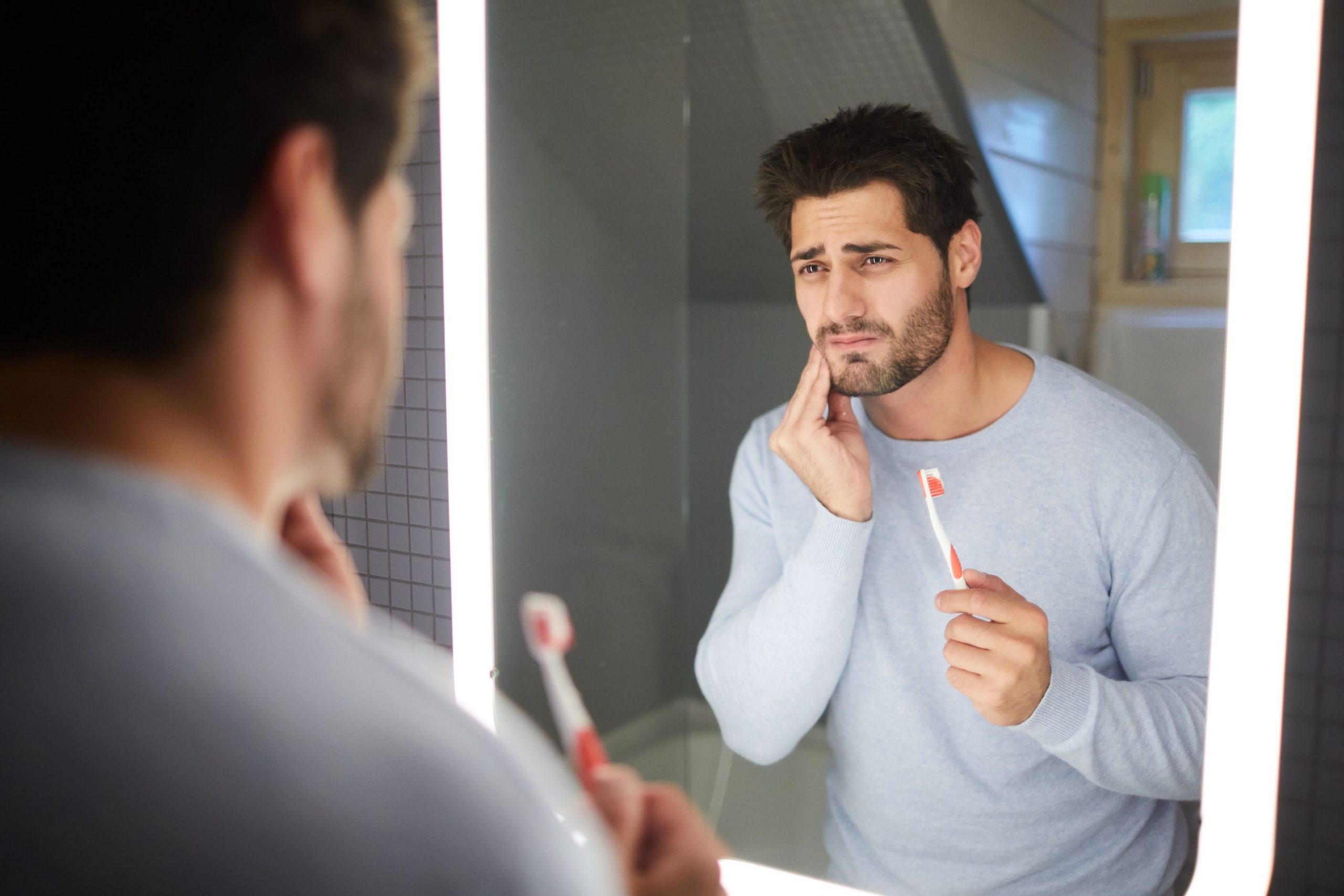
We’ve seen this happen too many times now, so it bears repeating: Don’t chew ice! Chewing ice can lead to numerous dental problems, such as enamel loss and eventually tooth decay. With the summer months close by, we’re worried that you’ll begin crunching away at cold ice cubes in your drink and then suddenly, CRACK! That last piece wasn’t just ice – it’s your tooth!
With the stay-at-home orders in effect near-nationwide and most dental offices remaining closed for the time-being pending further notice from the American Dental Association, PLEASE take care of your teeth.
A broken tooth can be quite common in both adults and younger people. Even though enamel is the hardest, most mineralized tissue of the body, it’s far too easy for it to be damaged. Think about how frequently we’re chewing – hard candy, popcorn, foods filled with enamel-eating sugars… Dental conditions like cavity or night teeth grinding (bruxism), also can cause a tooth to weaken and eventually chip. If you have recently broken a tooth – definitely stop by our office ASAP – here are some things to keep in mind:
What Happens if You Don’t Repair a Broken Tooth?
A little chip on a tooth might certainly not be the end of the world. You might even think it’s no big deal at all, particularly if it’s a molar that nobody will see. However, smaller chips square measure sometimes not problematic unless they’re sharp, then they might probably cut your mouth. However, if your chip is critical enough, it could lead on to additional serious issues like pain, hot/cold sensitivity, bad breath, swollen glands, and even infected roots.
Sharp edges can cut your cheek, tongue, and gums
Deep chips will impact the foundation of the tooth, resulting in potential infections or tooth aches
These chips may also cause cavities, leading to increased sensitivity and bad breath. Even small chips can grow larger and cause bigger problems – eventually leading to the necessity for root canals or extractions.
When should I get this looked at?
You should see your dentist immediately if you suspect you may have a chipped or broken tooth. If a chip is critical enough, it will harm the pulp that’s within the tooth. The dental pulp is the center of your tooth, and it’s made of living tissue, blood vessels and nerves. Damage to the pulp will be very painful and, if untreated, will become infected. If this happens, you can expect more in-depth dental work. Even once you’ve been attended to the first time around, you can also expect to visit repeatedly over the next few months.
How will your dentist fix a broken tooth?
With magic! Well, no, but our dentists certainly make it feel that way! For minor chips, your dentist may file the broken tooth or fill it with a dermal color-matching bond to bring it back to its traditional glory once again. Severe chips that don’t harm the foundation or pulp might need a cap or crown to shield the tooth from future infections. In such cases where regrettably the pulp or root is affected, you will most likely require a crown or cap to be placed over the tooth.
How do I stop myself breaking my teeth?
Maintaining sensible oral hygiene habits is the first step in preventing a broken tooth. Take these additional steps and you can ensure you have no cavities and be well on your way to keeping your enamel sturdy.
Playing competitive contact sports? Your dentist can also custom-fit a mouthguard for you! It’s quick, easy, and can save you undue injury on the field.
Nervous habits? Biting your nails or chewing on your pen cap can wear down your teeth over time. Put a spray on your nails or have something like a stress-ball near by to take away attention from your teeth.
Chewing Ice? Stop that! Leave the hard candies in the aisle, and keep the ice in the cup. If you can’t resist the treat, avoid the temptation to bite and break the candy.
Sometimes it can feel like it’s demanding to take care of your teeth. However, with sensible oral hygiene, and adjusting your habits, you can take the steps needed to keep your teeth sturdy and chip-free for life!
If you have got a broken tooth and need it to be assessed, our staff is always at your disposal. We’re located at 1135 W. Columbia Avenue Kissimmee, Florida 34741 and can always be reached directly at (407) 933-4343.
